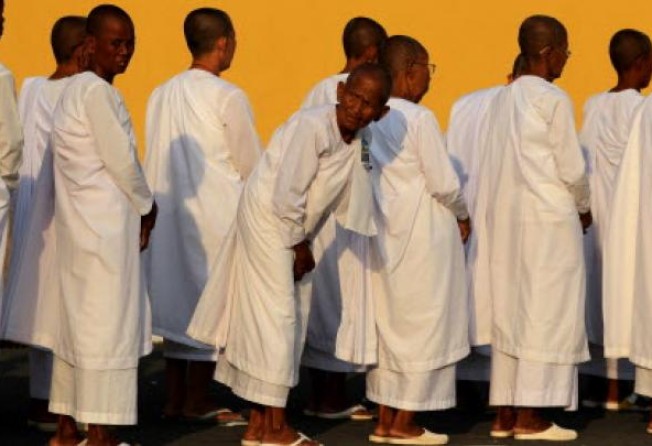Cambodians bid farewell to ex-king ahead of cremation

Thousands of Cambodians paid their last respects to their beloved former king Norodom Sihanouk as his body lay in state on Saturday ahead of his cremation next week.
The mourners were able to glimpse the late monarch’s gilded casket through doorways to the purpose-built crematorium where it was carried Friday in a lavish procession that brought Phnom Penh to a standstill.
His body will be kept at the crematorium until Monday when his wife and his son, current King Norodom Sihamoni, will start the cremation ceremony.
“I had the chance to pay my last respects to the King-Father,” 65-year-old Sun Sopho, said, with tears in her eyes, reflecting the sorrow of many who see Sihanouk as a force of stability over six turbulent decades.
“I asked his soul to bless us and to keep peace for the country forever.”
The mercurial ex-monarch died of a heart attack aged 89 in Beijing on October 15 last year.
Sihanouk was just 18 when placed on the throne in 1941 by French colonial authorities, but quickly defied his patron’s expectations of a pliant king.
A father of 14 children over six marriages, Sihanouk abdicated in 2004 after steering Cambodia through six decades marked by independence from France, civil war, the murderous Khmer Rouge regime, his own exile and finally peace.
Sihanouk - a self-confessed “naughty boy” who loved to direct films, write poetry and compose songs - remained hugely popular among Cambodians. But his record is not without controversy.
After being ousted by the US-backed General Lon Nol in 1970, he aligned himself with the Khmer Rouge, only to be placed under house arrest as the communist regime terrorised the nation.
Before the Vietnamese toppled the Khmer Rouge in 1979, Sihanouk took exile in China. He regained his throne in 1993, although his influence was greatly diminished and he abdicated in 2004 to be succeeded by Sihamoni.